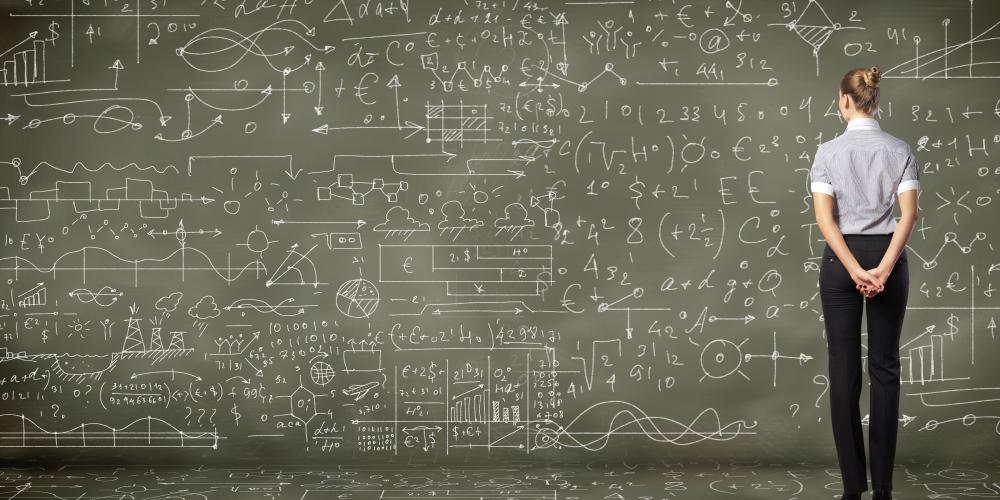
Last year, VUB was the first university in Flanders to integrate data science into its maths teaching, with the bachelor’s programme in mathematics and data science. As a true pioneer, VUB wanted to offer an answer to the increasing demand for mathematicians and data specialists on the labour market. Building on this, from September, VUB is offering shortened, tailor-made programmes for teachers and lateral entrants, among others. These programmes also lead to the bachelor of mathematics and data science and offer access to the master of mathematics or the international track in cooperation with the French University Cergy.
“We noticed a growing interest from ‘lateral entrants’ to the programme after its launch last year and responded quickly. In doing so, we are actively responding to the needs of our society, just as we did 40 years ago when VUB was the first university in Flanders to offer the computer science programme,” says vice-rector for Education and Student Policy Jan Danckaert.
Unique and customised
The tailor-made condensed programmes to obtain the bachelor’s degree in mathematics and data science vary from 63 to 135 credits, depending on the student’s previous education. In addition to maths and data science, the curriculum includes physics and elements from computer science such as machine learning, artificial intelligence and digital health. The shortened programmes can also be followed part-time. Teachers or other lateral entrants who work part- or full-time can also start this programme via a customised programme.
After the shortened programme, which leads to a bachelor’s degree in mathematics and data science, lateral entrants can obtain a master’s in mathematics. This is particularly interesting for teachers of maths in the first and second grade who would like to teach in the third grade of secondary education. For these teachers there is also a bridging programme worth 90 credits which doesn’t lead to the bachelor of mathematics and data science but does give access to the educational master in mathematics.
With the new shortened and bridging programmes, VUB’s mathematics and data science programme offers an attractive option to maths teachers or physics or or engineering graduates who are considering further training in maths and data science.
“Including data science in the mathematics teaching was much-needed. Opening up the programme to as many people as possible was essential,” explains maths professor Ann Dooms. “An awful lot of data is generated today. Storing, processing and analysing all this information is a major challenge for the future. But there are not enough data scientists. Mathematics lies at the heart of data science. Analysis, algebra and statistics form the basis for AI and machine learning models, medical image processing and quantum computing. Our programme combines both. The fact that after the introduction of our bachelor of mathematics and data science we received so many applications from lateral entrants was confirmation of this. Mathematics has never been so alive and this will only increase in the future.”
International opportunities thanks to EUTOPIA
After completing the bachelor of mathematics and data science, students can also enter the final year of the YGREC international bachelor in modelling and data science at the Université de Cergy-Pontoise near Paris. Cergy is one of VUB’s partners in the EUTOPIA network. Afterwards, students follow the final year of the master of mathematics at VUB. Graduates will have an additional foreign qualification in the field of data science and will have practical experience as a starting data scientist thanks to the many internships in companies during the programme.
If you would like more information, come to the information day on 5 September or see www.wiskundeinbrussel.be